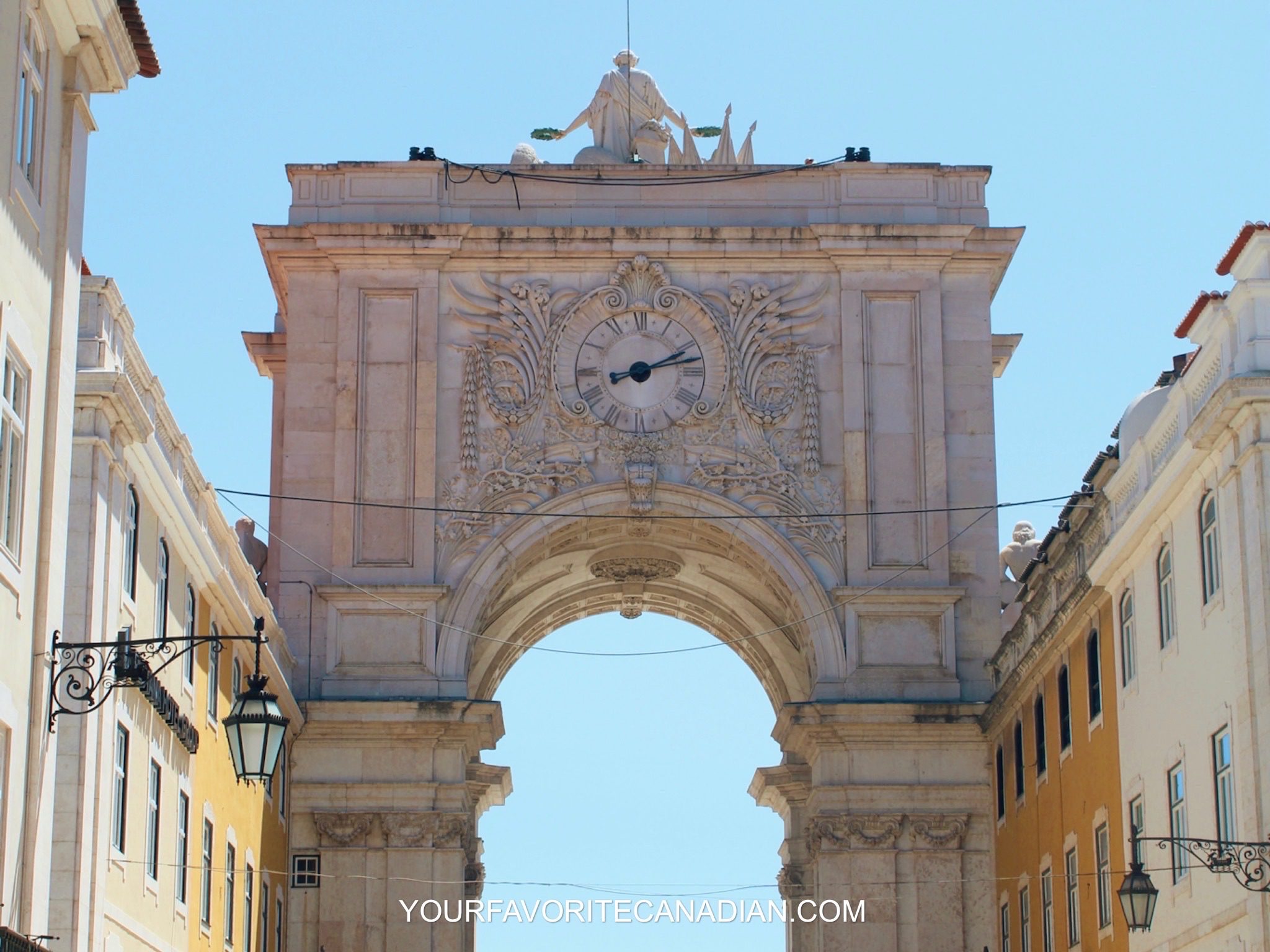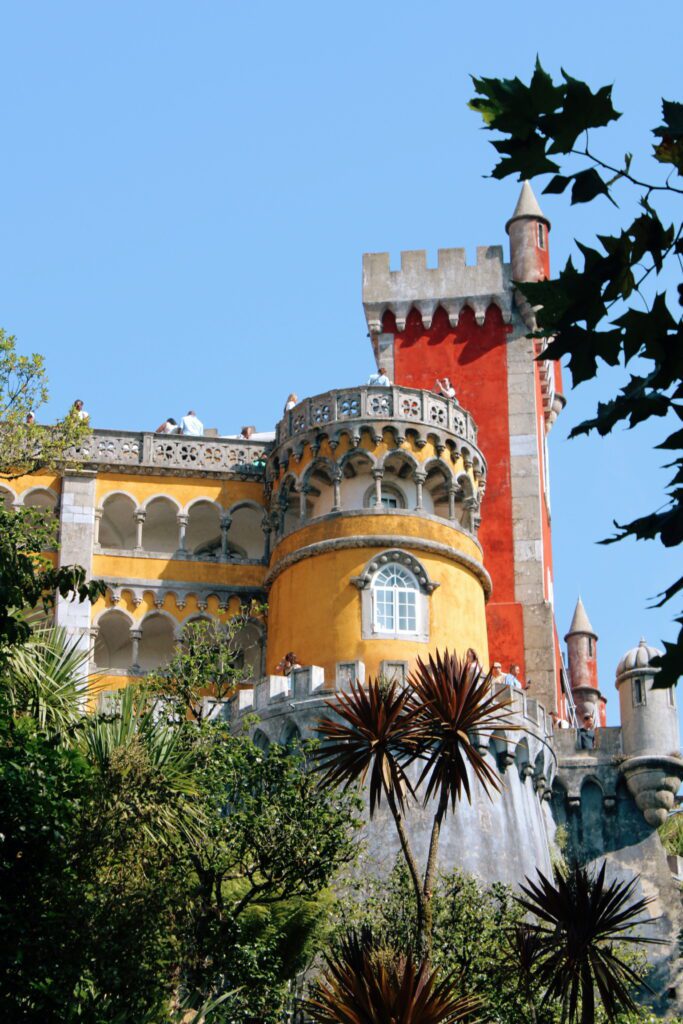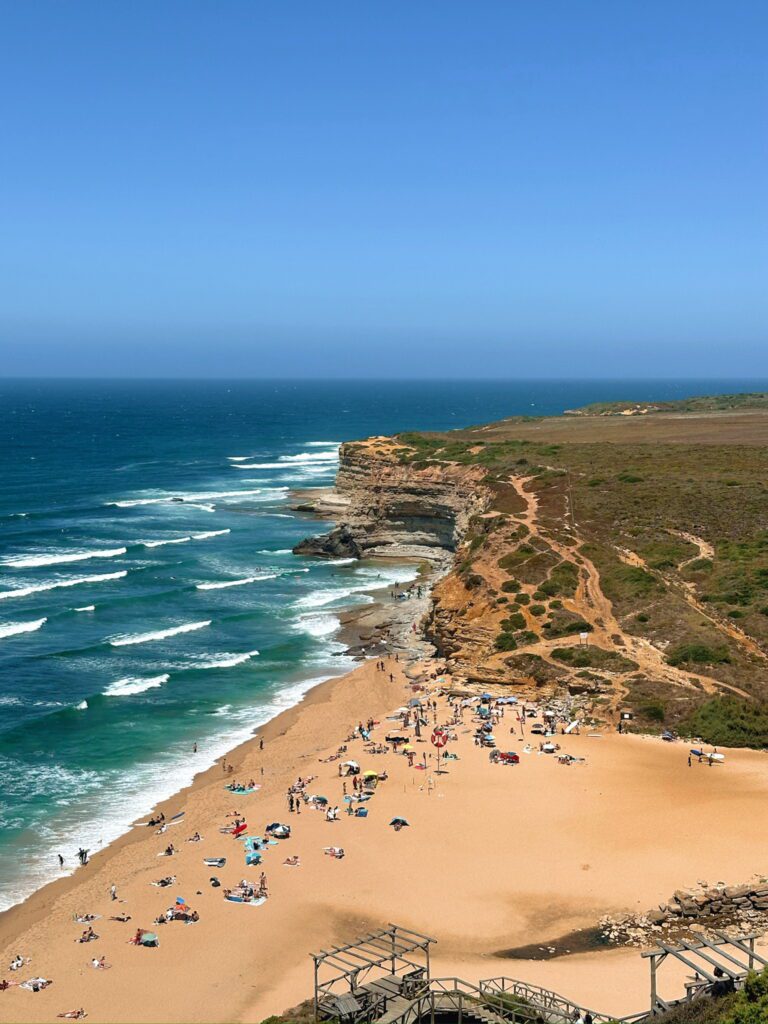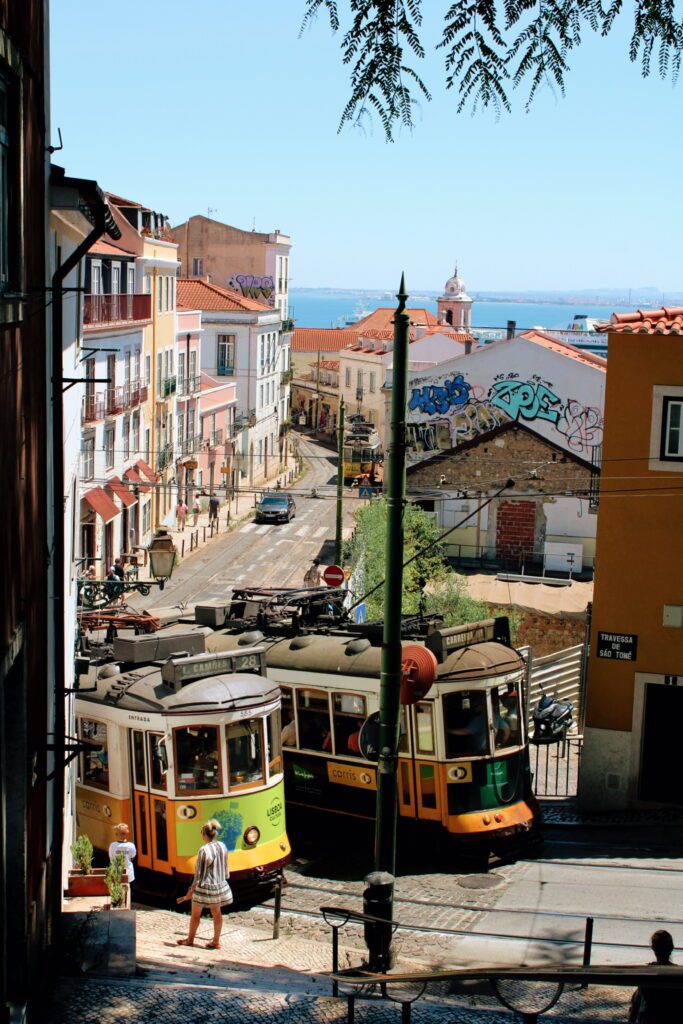Portugal is a country that effortlessly blends rich history, vibrant culture, and breathtaking landscapes, making it a must-visit destination for travelers of all kinds. From the sun-drenched beaches of the Algarve to the charming cobblestone streets of Lisbon and Porto, this Iberian gem offers endless opportunities for exploration and adventure. Whether you’re surfing the world-class waves of Ericeira, tasting the famous Port wine in the Douro Valley, or wandering through the ancient streets of Évora, Portugal is a place where old-world charm meets modern excitement. In this guide, we’ll take you through the best places to visit, top things to do, and insider tips to help you experience the very best of Portugal.
- Best Time to Visit: Climate, Crowds & Prices
- Local Culture & Etiquette: Cultural Norms, Language, Etiquette – Visiting Religious Sites
- Money Currency & Payments
- Accommodation Options: Types of Accommodations, Recommendations, Essential Apps
- Local Cuisine
- Transportation: Transportation Options, Essential Travel Apps
- Safety & Health: Tap Water Conditions, Health Precautions, Emergency Informations, Safety Tips
- Visa Requirements
- Staying Connected: Getting a SIM Card in Portugal
- Top Attractions & Activities
1
Best Time to Visit
Climate
Portugal enjoys a Mediterranean climate with mild winters and warm, dry summers, making it an attractive destination year-round.
The best weather is typically between April and October, when the days are sunny, and the temperatures are ideal for beach activities and sightseeing. Coastal areas like the Algarve and Lisbon can see temperatures ranging from 20°C to 30°C during these months, while inland areas may get slightly hotter in the peak of summer.
Spring and early autumn are particularly pleasant for outdoor activities, as the heat is more moderate. Winter (November to February) brings cooler temperatures, especially in the northern regions, but it’s still mild compared to many other European countries.
Crowds & Prices
High season runs from June to August, when Portugal’s coastal regions, like the Algarve and Lisbon, are packed with tourists. During these months, you’ll find higher accommodation prices, crowded beaches, and longer lines at popular attractions.
For a more peaceful experience, the shoulder seasons of April to June and September to October are ideal. These months offer pleasant weather with fewer crowds, and you’re more likely to find better deals on flights and accommodations.
Winter months are the least crowded, making it a great time for budget-conscious travelers, especially if you’re visiting cities like Lisbon and Porto, though some attractions may have reduced hours.
2
Local Culture & Etiquette
Cultural Norms
Portuguese culture places a strong emphasis on family, respect, and tradition. Locals are generally friendly and welcoming, especially if you show an interest in their customs and language. It’s common to greet people with a handshake or, in more familiar settings, with a kiss on both cheeks. Time tends to be more relaxed, especially in social settings, so don’t be surprised if things start a little later than scheduled. Dining is a leisurely experience, and meals often last longer than in many other countries, with lunch being the main meal of the day.
Language
The official language of Portugal is Portuguese, and while English is widely spoken in tourist areas and major cities like Lisbon and Porto, it’s polite to learn a few basic Portuguese phrases. Even a simple “obrigado” (thank you) or “bom dia” (good morning) will go a long way in showing respect for the local culture. Outside the main tourist areas, especially in smaller towns and rural regions, English speakers may be less common, so having a translation app handy can be helpful.
Etiquette – Visiting Religious Sites
Portugal has a rich religious heritage, and its many cathedrals and churches are important cultural landmarks. When visiting these sites, it’s essential to dress modestly out of respect. Shoulders and knees should be covered, and hats should be removed upon entering. Visitors are expected to keep noise to a minimum, as many locals use these spaces for prayer and reflection. Photography is often allowed, but it’s wise to check for any restrictions or signs indicating otherwise. If there’s a service in progress, it’s polite to stand quietly at the back or outside to avoid disruption.
3
Money Currency & Payments
When traveling to Portugal, understanding the local currency and payment methods is essential for a smooth experience. Here’s everything you need to know about managing money during your stay.
The Euro (€): The Local Currency
Portugal uses the Euro (€), like most countries in Europe. Banknotes come in denominations ranging from 5€ to 500€, while coins range from 1 cent to 2€. Coins are frequently used, especially for small transactions like public transportation or using public bathrooms.
Exchange Rates
Exchange rates fluctuate regularly, so it’s important to check the current rate before you travel. As a general reference, 1€ is approximately equivalent to $1.50 CAD or $1.10 USD, but this can vary, so it’s always a good idea to verify before your trip.
Currency Exchange
When exchanging currency, always use official exchange counters or banks. What I highly suggest you do, is either exchange the money before your trip at your local bank, or, get money out of an ATM that has your card logo on it, and refuse the currency rate. That means your local bank will take care of modifying the currency and high chances are you will get a better rate.
ATM Withdrawal Limits
ATMs in Portugal often have withdrawal limits per transaction, typically between 250€ and 1000€ (approximately $390–1500 CAD). If you need to withdraw more cash, you can often make multiple withdrawals, but be mindful that each transaction incur fees.
ATM Fees
Your home bank may charge a fee for international withdrawals, and the local bank operating the ATM may also charge a fee. It’s a good idea to withdraw large amounts at once to minimize fees. You can also ask your bank before your trip how they work on that matter. For me, I only had to pay the local bank fee since my bank never charged me and I had no limits.
Security
Use ATMs located inside banks, shopping centers, or other secure locations. Be cautious of any unusual devices attached to the ATM, and cover your PIN when entering it.
Card Payments, Minimum Spend & Transaction Fees
Visa and Mastercard are the most widely accepted cards. American Express and other cards may not be as commonly accepted, especially in smaller establishments. Some places may have a minimum spend requirement for card payments, so it’s useful to ask before making a purchase. Again, check with your bank regarding any foreign transaction fees that may apply when using your card abroad. These can add up, so it’s important to be aware.
Tipping Etiquette
Tipping in Portugal is generally appreciated but not always expected, especially outside of tourist areas. Here’s a breakdown of common practices:
- Restaurants: Tipping is not mandatory, but rounding up the bill or leaving 5-10% is a good gesture if you received good service. In casual places or cafés, rounding up the change is sufficient.
- Taxis: Tipping is not required, but rounding up to the nearest euro or leaving an extra euro or two is common.
- Hotels: For hotel staff, such as bellhops or housekeeping, it’s customary to tip 1-2 EUR per bag or per day of service.
- Tour Guides: If you’ve had an enjoyable experience with a tour guide, a tip of 10-15% of the tour price is considered polite.
4
Accommodation Options
Choosing your accommodation can significantly impact your travel experience. To help you make the best decision, here’s a breakdown of the three main types of accommodations, with recommendations from our past trips and essential apps that will make booking these stays easier for you!
Types of Accommodations
- Villas: Renting a villa is by far the most visually stunning option, offering unique and original stays that can be truly memorable. Villas are usually equipped like apartments, complete with a kitchen and fridge, allowing you to prepare your own meals. While villas tend to be pricier, you can save money by cooking rather than dining out every day. This option is especially ideal for families or large groups, as splitting the cost can make it more affordable and enjoyable than staying in separate hotel rooms.
- Hotels: Hotels are a classic choice with a wide range of options to suit different budgets. Staying in a hotel offers you the comfort of daily housekeeping, room service, and access to various amenities that you won’t find in a villa, such as spas, yoga classes, and more. If you value security and convenience, hotels are a great option, especially for those who prefer having staff available around the clock to assist with any needs.
- Hostels: For backpackers and budget travelers, hostels are the most economical choice. While they may lack the luxury and comfort of villas or hotels, hostels offer a unique and social experience, perfect for young travelers. You’ll typically have a bed in a shared dormitory, making it an excellent way to meet new people, especially if you’re traveling solo. Many hostels also organize group activities to help guests connect. If you’re young and willing to trade a bit of comfort for a memorable and social experience, hostels are the way to go.
Recommendations
Here are two of my favorite hostels I stayed at during my trip to Portugal:
Safestay Lisbon Bairro Alto: With a solid 8.1-star rating on Hostelworld, this hostel is located right in the heart of Lisbon, in the vibrant Bairro Alto district. It was my first stop in the city, and I immediately felt welcomed by the friendly and social atmosphere. The pub crawl event hosted by the hostel was a great way to meet fellow travelers, and I ended up forming friendships that lasted throughout my trip. For solo travelers, this kind of social setting is ideal, as it makes it easy to connect with others. The central location also meant easy access to Lisbon’s top attractions and nightlife.
Fantasy Hostel Porto: While this hostel wasn’t as social as the one in Lisbon, it excelled in comfort and privacy. The beds were incredibly cozy, with curtains providing a nice sense of seclusion, perfect for a good night’s rest after a day of exploring Porto. Though the atmosphere was more laid-back and quiet, it offered the perfect place to unwind, especially after a busy day of sightseeing. If you’re looking for a peaceful and comfortable stay, this hostel is a great option.
Essential Apps
- Booking.com: This app offers a wide range of accommodations, including hotels, hostels, and villas, all in one place.
- Airbnb: Perfect for finding unique and original villas or apartments that offer a home-like experience.
- Hostelworld: Specializing in hostels, this app features an excellent rating system to help you choose the best option. It also includes group chats where you can connect with others who will be staying at the same hostel.
Extra Recommendation: Once you’ve found a place you like, especially with hotels and hostels, be sure to visit their official website. Often, you can find exclusive discounts when booking directly through them.
5
Local Cuisine
Portuguese cuisine is known for its fresh ingredients and strong ties to the sea. Bacalhau (salted cod) is the national dish, with countless recipes across the country. Other seafood staples include grilled sardines and cataplana, a seafood stew from the Algarve.
Meat dishes like cozido à portuguesa, a hearty stew, and Porto’s famous francesinha sandwich are also must-tries.
For dessert, don’t miss the iconic pastéis de nata (custard tarts). Pair your meals with vinho verde or a glass of port wine for a true taste of Portugal.
6
Transportation
Transportation Options
Navigating Portugal is easy, with several transportation options available to suit your travel style. Here’s a breakdown of the best ways to get around:
1. Trains: Portugal’s train network is extensive and well-connected, making it an efficient way to travel between major cities like Lisbon, Porto, and Faro. The high-speed Alfa Pendular trains offer a comfortable and quick journey, while regional trains are available for smaller towns. Tickets can be purchased online or at train stations.
2. Buses: For areas not served by trains, buses are a reliable option. Companies like Rede Expressos and FlixBus offer affordable long-distance routes connecting both cities and smaller destinations. Buses are often the best way to reach rural or coastal areas.
3. Public Transportation in Cities: In Lisbon and Porto, the metro systems are efficient for getting around. Lisbon’s historic trams, especially the famous Tram 28, are a scenic way to explore. Buses and trams also operate in most major cities and are easy to navigate with single or day-pass tickets.
4. Car Rentals: For travelers who want to explore at their own pace, renting a car is a great option, especially for visiting more remote regions like the Algarve or the Douro Valley. Driving is straightforward, but parking can be a challenge in city centers.
5. Taxis & Ride-Sharing: Taxis are readily available, and Uber operates in most major cities, offering a convenient and often cheaper alternative. These are great for short distances or when public transport isn’t practical.
Essential Travel Apps
- Omio: This app is a must-have for comparing transportation options within Portugal. It shows prices and schedules for buses, trains, and flights, helping you find the best deals.
- FlixBus & Rede Expressos: For the buses between cities, the two most affordable options are usually FlixBus and Rede Expressos. Find which one is the cheapest on Omio but make sure to follow by checking if the price is even cheaper on their respective apps.
- Uber and Bolt: Popular for ridesharing across Portugal, they offer a convenient alternative to taxis with very competitive prices.
- Google Maps and Maps.me: These are great for navigating both rural and urban areas when walking or driving.
Stay connected! Follow us on social media for exclusive content & updates on our travels.
On our website, you’ll find all the essential information and tips, while on our social media, you’ll get even more – including personal experiences, funny moments, stunning videos, and much more!
7
Safety & Health
When traveling to Portugal, it’s important to be aware of both safety and health precautions to ensure a smooth and enjoyable trip. Below are three things to consider: the tap water conditions, other health precautions and emergency information.
Tap Water Conditions in Portugal
Unlike some other destinations, Portugal’s tap water is safe to drink across most regions, including major cities like Lisbon, Porto, and the Algarve. However, in remote areas, or if you have a sensitive stomach, you may prefer bottled water for peace of mind.
Emergency Information
Portugal has a highly developed healthcare system, and emergency services are reliable and accessible across the country.
Emergency Numbers
- Emergency services (police, fire, ambulance): 112 (this number works EU-wide).
Hospitals and Clinics: Major cities like Lisbon, Porto, and Faro have modern hospitals with English-speaking staff. In rural areas, smaller clinics and health centers (known as “centros de saúde”) can assist with minor health issues. It’s advisable to carry travel insurance to cover any potential medical costs.
Pharmacies: They are abundant and easy to find in both urban and rural areas. Most are open from 9 am to 7 pm, and many provide 24-hour service. Pharmacists in Portugal are knowledgeable and can assist with minor medical issues and over-the-counter medications.
Language and Communication: Most medical professionals speak English, especially in tourist areas. However, it can be helpful to carry a list of your medical details translated into Portuguese, particularly if you have specific health concerns or take prescription medications.
Safety Tips
Every traveler needs to be cautious, especially if you are solo traveling. We wrote an entire article giving you our best safety tips. Make sure to come back at the end of your reading to read our article Top Safety Tips for Solo Travelers: Stay Safe & Confident.
8
Visa Requirements
Portugal is a member of the Schengen Area, which means the visa requirements for entering the country are largely determined by this agreement. The rules vary depending on your nationality and the length and purpose of your stay. Here’s what you need to know:
Short Stays (Up to 90 Days)
For tourism, business, or short-term stays, citizens of many countries do not need a visa to enter Portugal for up to 90 days within any 180-day period. This includes travelers from:
- EU/EEA/Swiss nationals: These citizens do not need a visa and can stay for as long as they want.
- Citizens from visa-exempt countries: Travelers from countries such as the United States, Canada, Australia, New Zealand, Japan, and South Korea, among others, can enter Portugal without a visa for up to 90 days. This rule applies across all Schengen countries, so the 90 days is cumulative across all Schengen countries visited during that period.
During your stay, you will need:
- A passport valid for at least three months beyond your intended departure date.
- Proof of sufficient funds for your stay and onward or return travel, if requested.
Visa Required for Longer Stays or Specific Purposes
If you plan to stay in Portugal for more than 90 days, or if your purpose of travel is not covered by the visa-exempt category, you will need to apply for a long-stay visa. Here are some of the most common types:
- Work Visa: Required if you intend to work in Portugal.
- Student Visa: Required if you’re studying in Portugal for more than 90 days.
- Long-Stay Visa (D-Visa): Required for any stay longer than 90 days, typically for employment, study, family reunification, or retirement.
ETIAS Requirement for Short Stays
Starting in 2024, travelers from visa-exempt countries, including the U.S., Canada, and Australia, will need to apply for an ETIAS (European Travel Information and Authorization System) before entering Portugal or any other Schengen country. ETIAS is not a visa but a travel authorization for short-term stays (up to 90 days). The application process is done online, and ETIAS is valid for up to three years or until your passport expires.
Visa Costs and Application Process
- Short stays (up to 90 days): Most visitors from visa-exempt countries do not need to pay for a visa, but may need to apply for ETIAS from 2024 onwards.
- Long-stay visas: Fees for long-stay visas (D-Visa) typically range from €100 to €120, depending on the purpose of your stay.
To obtain a long-stay visa, you must apply at the Portuguese embassy or consulate in your home country well in advance of your travel dates, as processing times can vary.
9
Staying Connected
Staying connected while traveling in Portugal is easy and affordable, with several options for purchasing a local SIM card. Whether you need data for navigation, communication, or simply staying in touch with friends and family, getting a Portuguese SIM card is a practical solution.
Major Mobile Providers
Portugal has three main mobile providers that offer prepaid SIM cards, all with good nationwide coverage, including rural areas and popular tourist destinations:
- MEO
- Vodafone
- NOS
Each of these providers offers a variety of prepaid plans that include data, calls, and texts. You can choose from daily, weekly, or monthly packages based on the length of your stay and usage needs.
Where to Buy a SIM Card
You can easily purchase a SIM card at various locations:
- Airport: Upon arriving in Portugal, you’ll find SIM card kiosks in the arrivals areas of major airports like Lisbon, Porto, and Faro.
- Shops and Kiosks: SIM cards are widely available at mobile provider stores, electronic shops, and kiosks found in city centers, shopping malls, and even convenience stores.
- Supermarkets: Large supermarkets, such as Continente and Pingo Doce, also sell prepaid SIM cards.
Make sure to bring your passport, as identification is required to register the SIM card, a common procedure in European countries.
Cost and Plans
Prepaid SIM card prices in Portugal are relatively affordable:
- Data Plans: Prices typically range from €10 to €30, depending on the data package you select. Most plans include generous data allowances (between 5 GB and 30 GB), and some also offer unlimited social media usage.
- Calling and Texting: Many prepaid plans include local calls and texts, and some even offer international calling minutes. If you plan to make frequent international calls, ask for plans that include international minutes or purchase an additional calling package.
10
Top Attractions & Activities
Whether you’re seeking adventure, relaxation, or a deep dive into history, Portugal offers a diverse range of attractions and activities that highlight the country’s natural beauty and its significant role in world history. Here are three must-see attractions:
Don’t want to miss out on our latest articles? Be sure to subscribe to our website, and you’ll receive a notification every time we publish something new!






